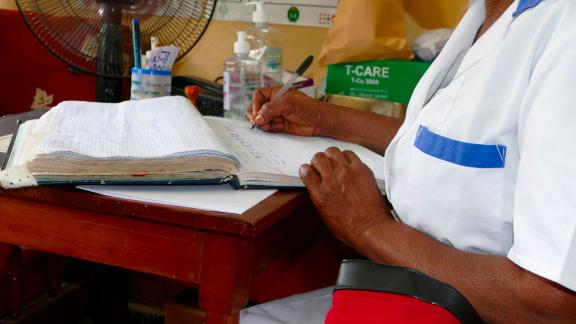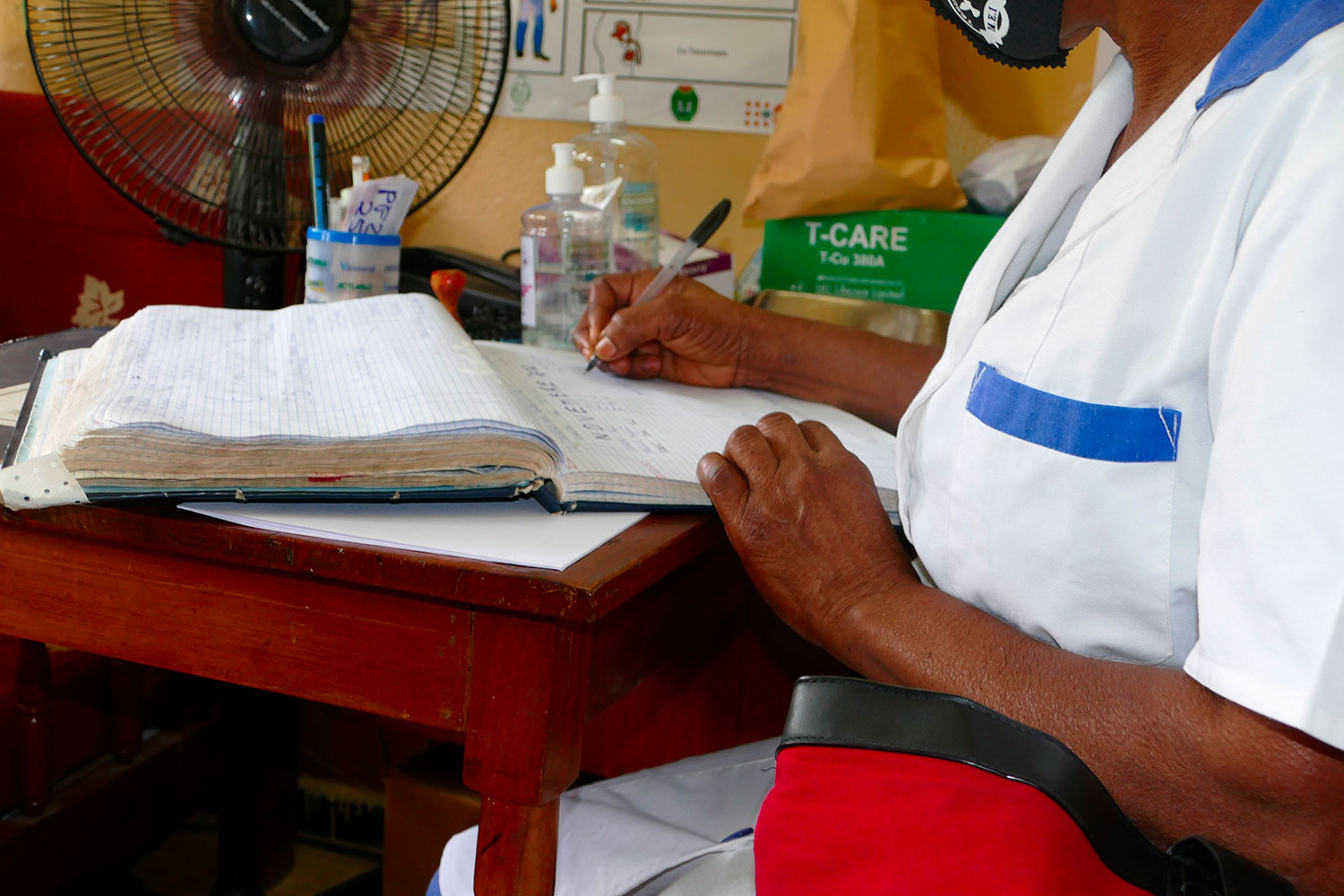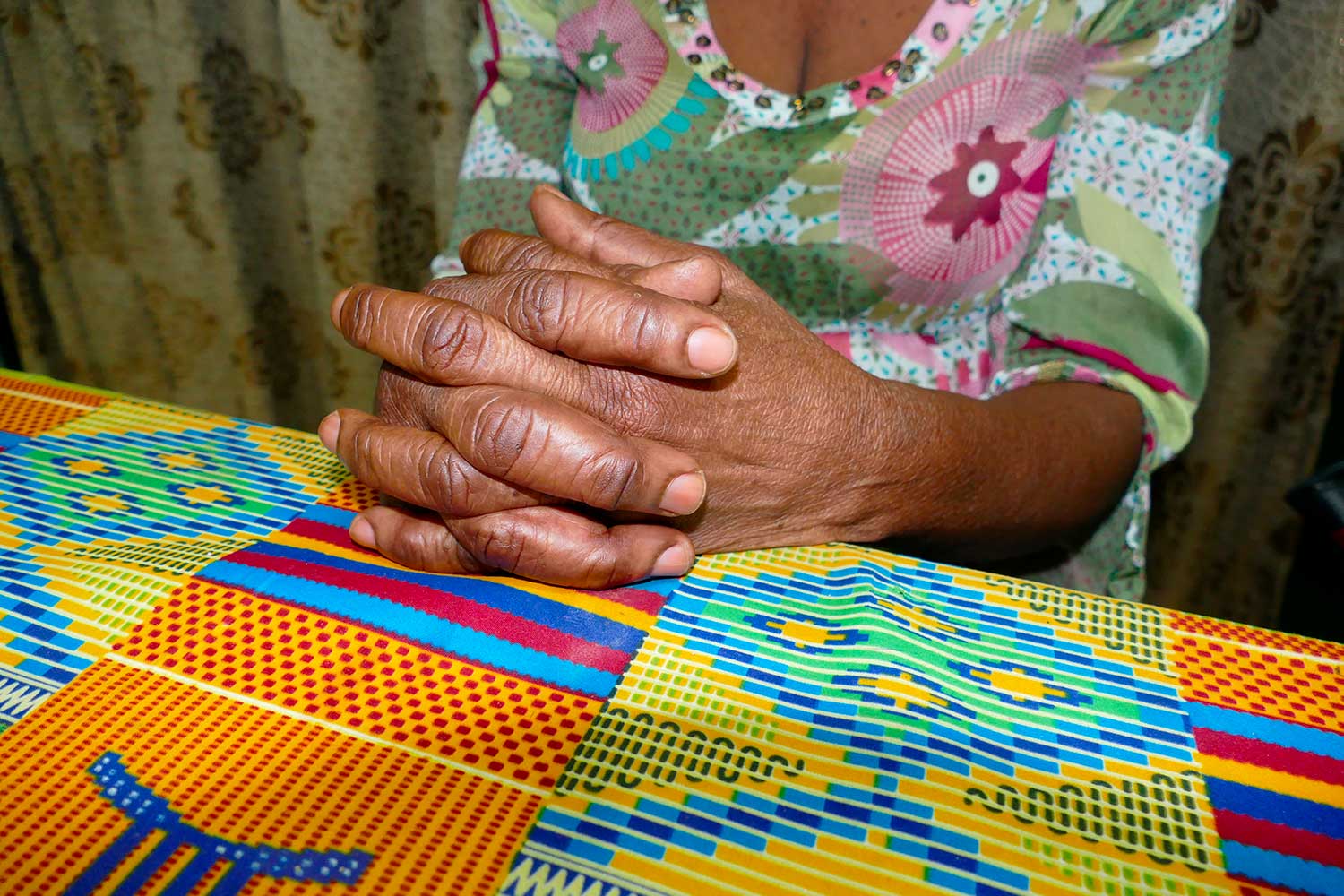
Cervical cancer is the most common cancer among women living with HIV. The likelihood that a woman living with HIV will develop cervical cancer is six times higher than for a woman who is not living with HIV.
However, it is preventable if screened and treated early. With the advent of low-cost visual inspection and effective early treatment techniques, women can be screened and treated for the early signs of cervical cancer more easily than ever before.
With the IPPF Japan Trust Fund (JTF) project implemented in 2017-2019, the Association Togolaise pour le Bien-Etre Familial (ATBEF) introduced cervical cancer screening and preventative therapy services into Togo, filling a vital gap of effective cervical cancer prevention in the country’s health care system.
Moreover, cervical cancer screening was integrated into the package of services offered to HIV-positive women. It has become possible for women living with HIV in Togo to be screened and treated for cervical cancer in one visit as part of a broader package of sexual and reproductive health services. The single visit approach has been highly successful and increases the rate of follow-up visits.
All ATBEF’s women clients living with HIV were enrolled in the campaign for a free annual cervical cancer check-up.
One of them is a 56-year-old Ami, who had her HIV positive diagnosis in 2003 at an ATBEF clinic.
"It was a hard blow for me at the time. It was hard for me at first to accept my status. I almost left my home and my children who were still very small. It took me more than three months to get used to this new reality," she says. Over a few months, she came to terms with her diagnosis with the support of counsellors from the ATBEF.
Then she made a big decision - to commit herself to the fight against HIV. Hired as a volunteer by ATBEF in 2004, she is now a popular psychosocial counsellor at the HIV testing unit. Her experience as a counsellor - and as a woman living with HIV - has made her an ideal promoter of cervical cancer screening.
ATBEF’s HIV programme is a perfect entry point for low-cost cervical cancer services and for promoting wider health services for young women and girls.
“We talk to all women of reproductive age about screening and treatment of precancerous lesions”, says Ami.
“At ATBEF the services are integrated. So during our pre- and post-HIV test counselling sessions we talk about the whole range of services ATBEF offers. We also talk to men about our cervical cancer programme so that they can tell their sisters and wives. We explain that the JTF project is a great opportunity to prevent cervical cancer. They are often motivated, and some women ask for the screening on the spot!”
Instant screening and treatment, above all it’s free
All women living with HIV welcomed the opportunity to be screened for precancerous cervical lesions because they know that they are at risk and, above all, that it’s free. Some of them thought it would be painful. We reassure them that it is just a visual inspection that allows the doctor to detect precancerous lesions. They were even happier when they saw that the results of cervical cancer screening tests are revealed at the same time - with treatment offered free of charge.
It’s not easy for a woman living with HIV to pay for screening every year. So this project, which makes it possible to offer this service free of charge, means that they are no longer stressed about the cost and are able to keep their appointments.
ATBEF's active caseload today is 1,308 people living with HIV. Ami has a strong affinity and empathy with them and she follows their progress through home visits. "I have become a counsellor for some couples and, more than that, for many I’m a close confidante." she says.
“As their peer and friend, I’m so pleased that many people do not have a problem with lesions. But I can tell you about one of them who was diagnosed with precancerous lesions. She was in shock and very tormented at first. ‘I won't have a chance of living long with HIV positive and cervical cancer,’ she said. But when she reassured herself that it was not serious and that she could heal, she was relieved. She successfully completed her treatment and is now well again.”
Communities have to be at the heart of integration efforts. Networks of women living with HIV and women’s rights and youth movements are formidable allies in the fight against cervical cancer, as Ami testifies. She is a member and founder of an HIV positive women's association, which she helped set up in 2005.
“The topic of screening for precancerous lesions is discussed during our regular Friday HIV counselling sessions when we discuss sticking to medication and how to keep well. Practically all our members have been screened.
“I've had the screening myself and I'm going to my routine check-ups as well. Lesions were discovered during my test, but thankfully not cancerous and, above all, I have regular check-ups every year.
“I think it is a good thing for women, especially for those who are HIV positive. It's better to do it than to stay in ignorance and get cancer. I was happy to benefit from this test.
“I remember this testimony from one of them who said "I am already living with a serious illness and now another dangerous illness on top of that. Especially since it's free and it allows me to get treatment in case it's found, why not do it?" she said.
Many of the women who have been screened also told their friends. “I think the JTF project is very beneficial, especially with the focus on women living with HIV. We should continue to offer testing to HIV positive women and keep raising awareness about this disease among all women.”
The JTF project broke down the silos between HIV and cervical cancer programmes by integrating screening and management of precancerous cervical lesions. It’s proving a smart investment and a life saver.
Profile
Ami is a 56-year-old mother of three. She learned of her HIV-positive status in July 2003 after being screened at an ATBEF clinic.
Her husband struggled to accept his own HIV status and did not adhere to the medication. When he died, Ami told herself that there was ‘no reason not to live’.
Instead of being overwhelmed by HIV, Ami decided to join the fight against it. She became an ATBEF volunteer in 2004 and is now a psychosocial counsellor at its HIV testing unit. Ami is proud of her new life, the support she gives to others and the trust she gained.
Today, with an undetectable viral load, Ami is a living testimony to living a healthy life with HIV. She intends to devote more of her time to the service of others.
Published on 2 February 2021
when










